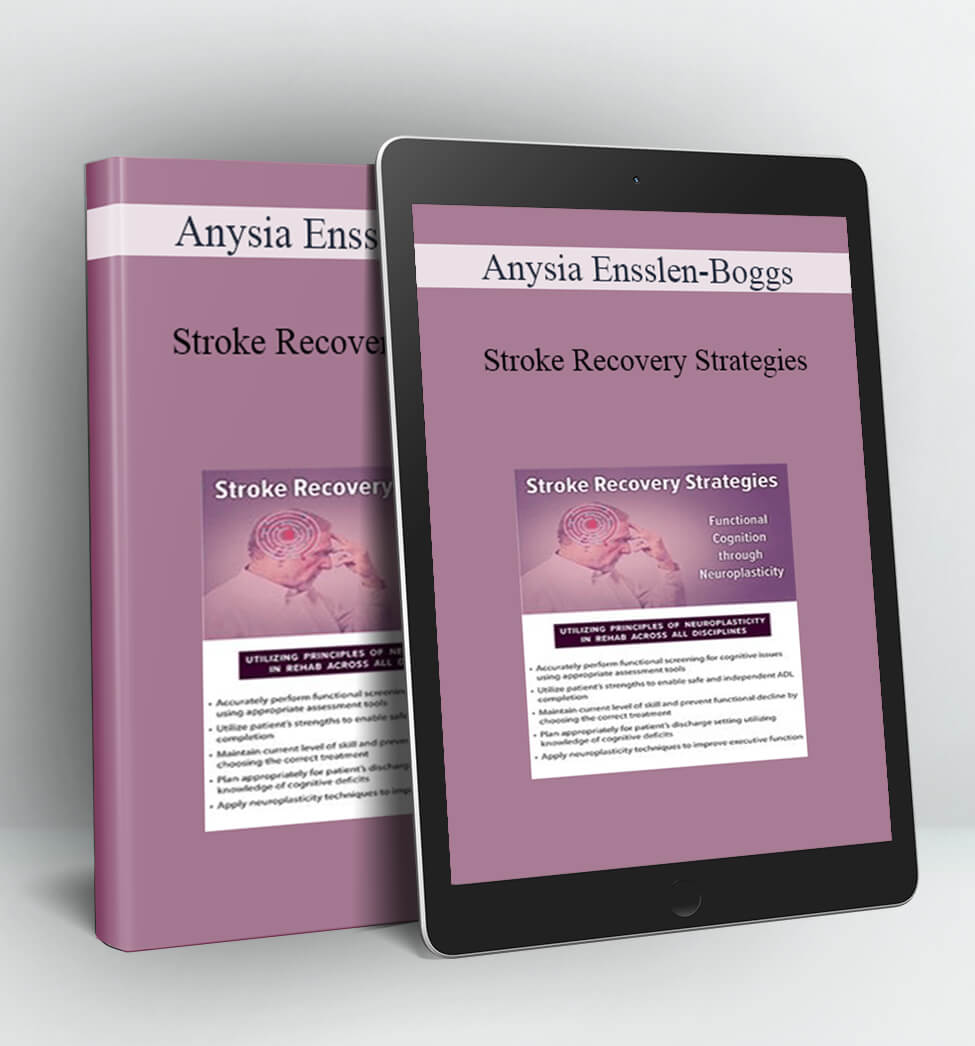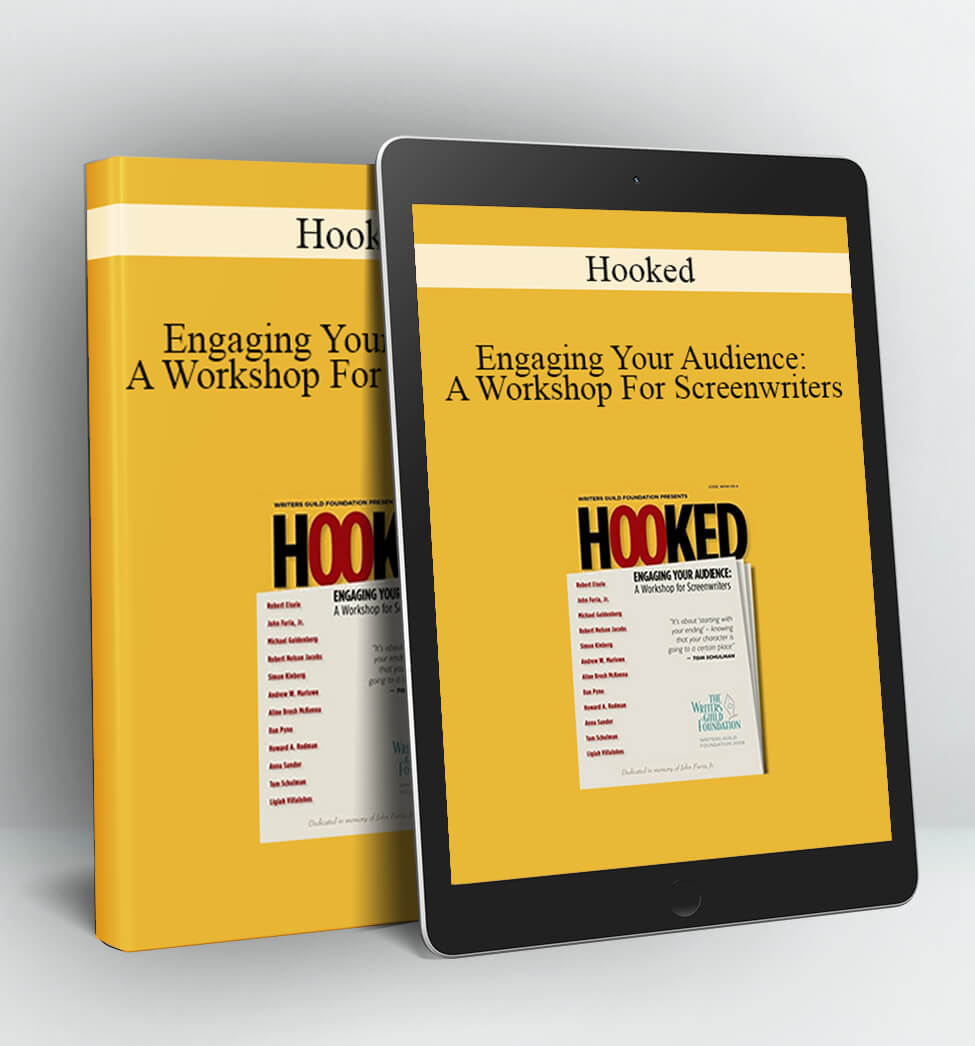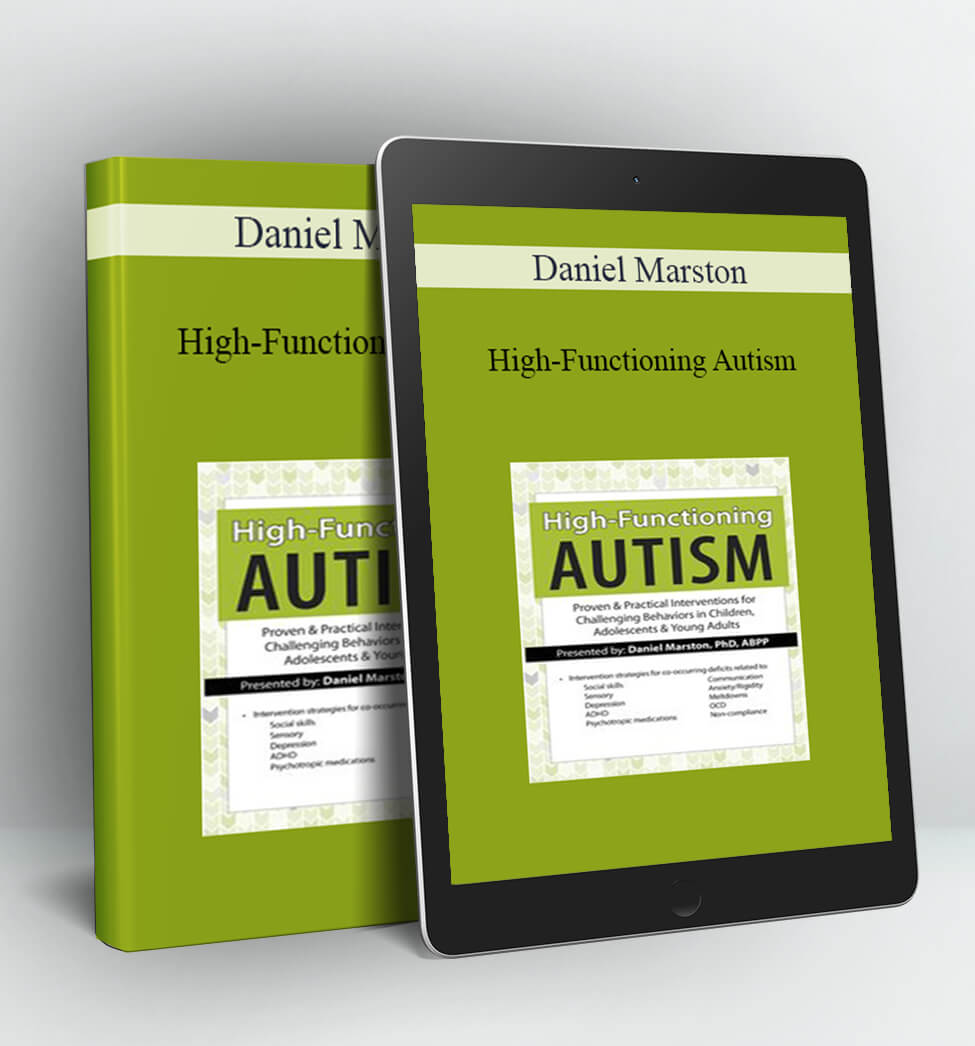Stroke Recovery Strategies – Anysia Ensslen-Boggs
- Faculty:
- Anysia Ensslen-Boggs
- Duration:
- 5 Hours 42 Minutes
- Format:
- Audio and Video
- Copyright:
- Aug 01, 2018
Description
Stroke causes a profound impact on both patients and family members and dramatically changes all aspects of life. Cognitive deficits as a result of stroke may have a permanent impact on all activities carried out during a patient’s daily life, and lead to accelerated physical decline as well as increased falls risks. These include difficulties with attention, orientation, memory, thought organization, reasoning, and functional problem solving. Often the patient has limited or no awareness of these issues and the complications associated with them. Therefore, it is imperative for the rehab professional to be able to recognize these deficits, and to understand how they affect a patient’s overall function, completion of ADL’s, and discharge plans.
This recording will provide you with the latest evidence-based knowledge related to cognitive deficits and their impact on stroke recovery. You will learn how to apply principles of experience-dependent neuroplasticity to select and implement functional treatment objectives that help your patients to maintain and improve their current levels of function. This recording will increase your ability to apply patient-focused interventions that facilitate more independent completion of language-based ADL’s. You will learn about proper documentation of patient goals and outcomes to optimize reimbursement for skilled services provided.
Handouts
| Manual – Stroke Recovery Strategies (10.58 MB) | 156 Pages | Available after Purchase |
Outline
Review of Cognitive Deficits
- Stroke as Etiology
- Neuroanatomy
- Orientation & awareness
- Attention
- Memory
- High-level cognitive deficits associated with right CVA
Impact of Cognitive Deficits on Swallowing
- Feeding
- Diet changes and recommendations
- Swallowing strategies
Assessment of Cognitive Deficits Following Stroke
- SLUMS
- MOCA
- Other standardized assessments and screening tools
- Setting functional treatment objectives
Neuroplasticity
- What is neuroplasticity?
- 10 Principles of Experience-Dependent Neuroplasticity?
- Neuroplasticity and Evidence-Based Practice
- Application to Level of Assistance and Cueing Hierarchy
Interventions
- Treatment techniques for stroke, cognition, and falls prevention
- Feeding and swallowing strategies
- Cueing hierarchy and level of assistance
- Facilitating neuroplasticity to achieve functional treatment objectives
- Improving completion of ADL’s by improving cognition
- Executive Functioning and application to patient safety
- Demonstrations of cognitive interventions
Effectively Communicating with Other Disciplines
- Targeting cognitive goals in PT and OT
- Interdisciplinary treatment plans/co-treating
- Family/caregiver/staff education
- Discharge plans: Is this patient safe at home?
Documentation Tips & Tricks
- Goal-writing
- Patient outcomes
- Justifying medical necessity
- ICD-10 and Medicare Guidelines
Case Studies
- Review of case studies in small inter-disciplinary groups
- Application of knowledge
Faculty
Anysia Ensslen-Boggs, ED.D, MS, CCC-SLP Related seminars and products: 1
ANYSIA ENSSLEN-BOGGS, ED.D, MS, CCC-SLP, is a licensed Speech-Language Pathologist with almost 10 years of experience in a variety of clinical settings, including acute care, outpatient, inpatient rehab, and home care. In three of these settings she has had the opportunity to serve as a graduate student supervisor, and a clinical fellowship year supervisor. In addition, she has significant experience working with adults with strokes in an outpatient work and community re-entry program. She is currently employed at a skilled nursing facility in central Pennsylvania. Dr. Ensslen has also been an instructor for Project IMPRESS (school-based SLP graduate program) at Bloomsburg University. She earned her doctorate in educational leadership from the University of Kentucky in Lexington. Her dissertation research focused on the clinical training and supervision of speech-language pathology graduate students. In her current work setting, Dr. Ensslen’s caseload consists primarily of geriatric patients with cognitive-linguistic, and swallowing deficits.
Access Download Stroke Recovery Strategies – Anysia Ensslen-Boggs right now!
Delivery Method:
After your purchase, you’ll get access to the downloads page. Here, you can download all the files associated with your order.
Downloads are available once your payment is confirmed, we’ll also send you a download notification email separate from any transaction notification emails you receive from Vinlearn.




